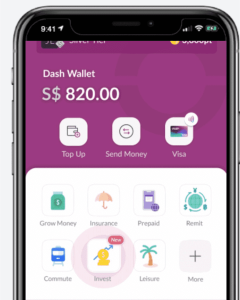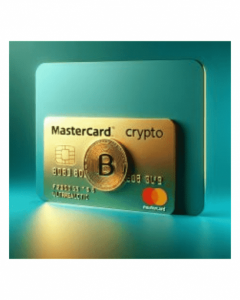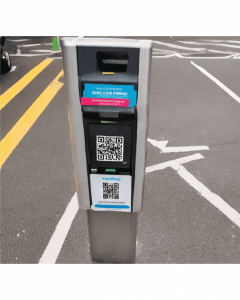Buy Now, Pay Later: £2.7 Billion ‘Shadow Credit’ Boom Leaves 3.1 Million borrowers in Debt Time Bomb
More than 3 million UK households find themselves owing a staggering £2.7 billion through 'buy now, pay later' (BNPL) borrowing, as unveiled by a recent analysis conducted by economists at the Bank of England. The findings, derived from a survey in March 2023, bring to light the prevalence of this unregulated financial practice, with a particular focus on the age group most likely to engage in it - individuals aged between 25 and 34.
The analysis, authored by Bank of England economists Gerry Gunner and James Waddell, emphasizes the potential financial vulnerability of BNPL users, raising concerns about a looming crisis for borrowers. The report, titled "Shining light on 'shadow credit' - what is buy now pay later and who uses it?" delves into the details of BNPL usage in the UK, revealing that 11 percent of households, equivalent to 3.1 million across the nation, reported being in debt due to BNPL usage. With an average balance of £866, the cumulative debt amounts to £2.7 billion.
The study indicates that a significant portion of users may not fully comprehend the financial burden they are undertaking when utilizing BNPL services. Younger individuals and renters are identified as the primary users of BNPL, both groups typically associated with less resilient financial circumstances. Moreover, 68 percent of BNPL users express concerns about their borrowing, compared to 45 percent of other borrowers. Disturbingly, BNPL users are more prone to falling behind on repayments, with 21 percent reporting arrears compared to only 6 percent of other borrowers.
The surge in BNPL usage is primarily fueled by its availability through various start-up fintech firms, many of which operate outside regulatory oversight, charging retailers a fee instead of interest on repayments. While some established lenders offer regulated BNPL products with interest charges, the unregulated nature of this borrowing method has raised significant concerns. Additionally, the research highlights the lack of clear correlation between BNPL usage and household income, with individuals earning £45,000-£54,000 being the most likely to report usage.
The report underscores the need for increased transparency and regulation in the BNPL sector, as the current lack of publicly available data further exacerbates the issue. As the popularity of BNPL continues to grow, it is clear that urgent measures are required to ensure the financial well-being of consumers and to prevent a potential crisis in the borrowing landscape.
Buy Now, Pay Later: £2.7 Billion ‘Shadow Credit’ Boom Leaves 3.1 Million borrowers in Debt Time Bomb
Online Lending Market Declines in Switzerland
Explore the reasons behind the shrinking online lending market in Switzerland and its impact on borrowers and financial institutions.
Explore the reasons behind the shrinking online lending market in Switzerland and its impact on borrowers and financial institutions.
Read moreWestern Union to Acquire Dash Mobile Wallet from Singtel
Western Union has entered a conditional agreement to acquire Dash, a mobile wallet by Singtel, marking a significant move in digital finance.
Western Union has entered a conditional agreement to acquire Dash, a mobile wallet by Singtel, marking a significant move in digital finance.
Read moreCredit Union Deal Records: Banking Industry Trends Unveiled
Delve into the latest banking industry trends as credit union deals hit record highs. Analyze the impact on the financial sector and future outlook.
Delve into the latest banking industry trends as credit union deals hit record highs. Analyze the impact on the financial sector and future outlook.
Read moreQonto Expands to Austria, Belgium, Netherlands, Portugal
Qonto, the top European finance solution for SMEs, launches in four new countries, enhancing support for freelancers and businesses.
Qonto, the top European finance solution for SMEs, launches in four new countries, enhancing support for freelancers and businesses.
Read moreSwiss Stock Exchange Targets European Crypto Market
The Swiss stock exchange is exploring a new venue in Europe for cryptocurrency trading, aiming to compete with established firms like Binance and Coinbase.
The Swiss stock exchange is exploring a new venue in Europe for cryptocurrency trading, aiming to compete with established firms like Binance and Coinbase.
Read moreMetaMask, Mastercard, and Baanx Unveil the World’s First Crypto Card
MetaMask, Mastercard, and Baanx have launched the world's first crypto payment card, revolutionizing how users spend their digital assets. This innovative card allows holders to use their MetaMask wallet for everyday purchases, bridging the gap between cryptocurrency and traditional spending.
MetaMask, Mastercard, and Baanx have launched the world\'s first crypto payment card, revolutionizing how users spend their digital assets. This innovative card allows holders to use their MetaMask wallet for everyday purchases, bridging the gap between cryptocurrency and traditional spending.
Read moreEurizon and Eurobank: Strategic Funds Expansion in Greece
Discover how Eurizon and Eurobank are collaborating to enhance fund offerings in the Greek market, driving investment opportunities forward.
Discover how Eurizon and Eurobank are collaborating to enhance fund offerings in the Greek market, driving investment opportunities forward.
Read moreBeware the Rising Cashless Parking Scam: Protect Yourself from QR Code Fraud
Stay vigilant against the increasing threat of QR code scams in cashless parking systems. Learn how to spot and avoid falling victim to fraudulent QR codes.
Stay vigilant against the increasing threat of QR code scams in cashless parking systems. Learn how to spot and avoid falling victim to fraudulent QR codes.
Read moreLloyds Bank Warns of Booking.com and Airbnb Scams
Stay safe this summer! Lloyds Bank alerts customers to potential fraud on Booking.com and Airbnb. Protect your vacation plans.
Stay safe this summer! Lloyds Bank alerts customers to potential fraud on Booking.com and Airbnb. Protect your vacation plans.
Read more














